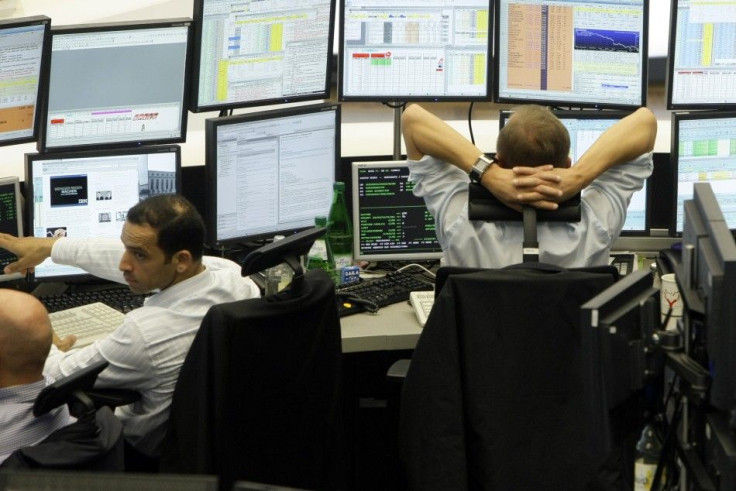U.S. 10-Year Treasury Note Near 2% - Low Interest Rates Continue for U.S. Government
Analysis

With every month there's a warning from conservatives, supply-side economics advocates, and inflation hawks alike that both inflation and interest rates are about to vault higher, due to the U.S. Federal Reserve's quantitative easing program and Congress' prior fiscal stimulus to avert a depression.
But with each month, the problem does not appear. Take interest rates, for example.
Have you seen what's happened to the interest rate on the 10-year U.S. Treasury bond in the past year?
A year ago, in February 2011, investors charged the U.S. government 4 percent to borrow money for 10 years. Today? The U.S. government can borrow money for 10 years at 1.97 percent and there's talk the interest rate may drop even more.
Low Interest Rates
Institutional investors know what the roughly 2 percent 10-year U.S. Treasury bond means, the typical person may not: it means that in real terms -- the return after factoring-in inflation -- investors receive no rate of return on their investment. Zip. Nada. Niet. In other words, hedge funds and investment funds are paying the U.S. government to hold their money.
Somehow, however, this reality has not sunk in to the conservatives, supply-side economics advocates and interest rate worriers. Despite annual budget deficits by the U.S. government exceeding $1 trillion, the 10-year Treasury rate remains low.
Interest rate worriers also argued that interest rates would rise as soon as the Fed tapered its bond buying program, but the rate rise did not materialize.
Then it was the credit downgrade by Standard & Poor's in August: that would surely send interest rates on U.S. debt soaring. But it didn't occur then either.
Then it was the failure of Congress' super committee to reach agreement on a long-term budget deficit reduction package: that would certainly send U.S. debt rates toward the stratosphere. Nope, interest rates did not vector higher then, either.
Insitutional Investors Still Concerned About Recovery's Durability
Why haven't interest rates on U.S. bonds soared? The reason is complex -- it's partly due to the U.S.'s safe haven status, but the primary cause is institutional investors' concern about the strength and durability of the U.S. and global economic expansions. Institutional investors are concerned that both may slow in 2012, hence they're parking at least a portion of their money in very safe investments, and U.S. Treasuries are one. It's a form of hedging / a balancing act by these institutions: there's a decent chance that commercial activity will increase in the first half of 2012, but there's also a larger-than-minor chance both the U.S. and global economies will slow.
And why are institutional investors concerned about a possible slowdown? Contrary to supply side assertions, the reason is not a lack of capital or wealth: corporations are sitting on about $2 trillion in cash and there's plenty of wealth in both the U.S. and abroad. There reason is a lack of demand: in the U.S. -- a lack of consumers, due to the high unemployment rate and low rate of household formation.
The good news in this ongoing debate is that, aided by both fiscal stimulus and the Fed's quantitative easing program, the U.S. economic recovery is strengthening: the economy created 200,000 jobs in December -- the fourth consecutive month of decent job gains -- with strength across the sector spectrum. Further, while there still are formidable headwinds working against the economy, barring another wave of the global financial crisis, the recovery appears to be progressing toward the 250,000 new jobs per month needed to substantially lower the unemployment rate, currently an intolerable 8.5 percent.
Finally, when the slack in the U.S. economy and labor force has been eliminated, at that point investment returns outside of U.S. bonds will likely woo institutional investors in significant numbers, pushing up the interest rate the U.S. government will have to offer to attract lenders.
But investors should understand that removing that slack may take a year, probably longer -- hence until then the prudent stance remains policies to lower unemployment, not ones that work against a phantom interest rate threat.
--
© Copyright IBTimes 2025. All rights reserved.





















